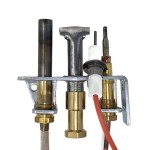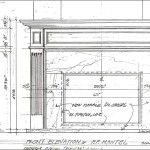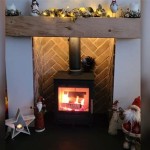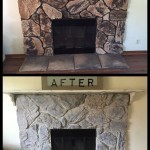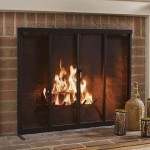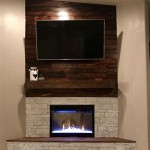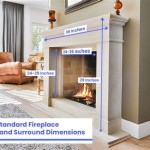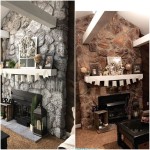Should You Turn Off Your Gas Fireplace Pilot Light in the Summer?
The question of whether to turn off a gas fireplace pilot light during the summer months is a common one for homeowners. While seemingly a minor decision, it involves considerations of energy consumption, safety, and the overall lifespan of the fireplace unit. There are varying perspectives on this practice, and understanding the arguments for and against it is crucial for making an informed choice. This article examines the pertinent factors to guide informed decision-making regarding gas fireplace pilot lights during warmer seasons.
A pilot light, in its most basic function, is a small, continuously burning flame that serves as the ignition source for the main burner in a gas appliance, such as a fireplace. In older models, the pilot light is essential for the reliable operation of the fireplace, ensuring that it can be easily ignited when needed. However, with advancements in technology, some newer fireplaces utilize electronic ignition systems, eliminating the need for a continuously burning pilot light. Determining whether your fireplace uses a traditional pilot light or an electronic ignition is a crucial first step in deciding whether or not to turn off the gas supply during the summer.
The ongoing debate centers around the economic and safety implications of leaving the pilot light on versus turning it off. Proponents of keeping the pilot light lit argue that it maintains a consistent temperature within the firebox, preventing moisture buildup and potential corrosion. They also suggest that it can reduce the risk of gas leaks by keeping the gas lines pressurized. Conversely, those who advocate for turning off the pilot light during the summer highlight the energy waste associated with a continuously burning flame and potential safety concerns related to gas accumulation in the event of a malfunction. The optimal course of action depends on individual circumstances, the specific fireplace model, and a homeowner’s risk tolerance.
Energy Consumption and Cost Savings
One of the primary arguments for turning off a gas fireplace pilot light during the summer is the potential for energy savings. Although a single pilot light consumes a relatively small amount of gas, the cumulative effect of burning it continuously over several months can be significant. Studies and estimations suggest that a pilot light can consume anywhere from 500 to 1,000 BTUs (British Thermal Units) per hour. Over the course of a summer, this can translate to a noticeable increase in gas bills. The actual cost will depend on local gas prices, but it is generally accepted that turning off the pilot light will result in some degree of savings.
The amount of gas consumed by a pilot light varies depending on the size and design of the fireplace. Older models, in particular, tend to have larger pilot lights that consume more gas. Newer models are often more efficient, but the consumption still adds up over time. Homeowners can estimate their potential savings by checking the fireplace manufacturer's specifications for pilot light gas consumption and calculating the cost based on their local gas rates. This calculation provides a concrete basis for deciding whether the savings justify the effort of turning off and relighting the pilot light.
Beyond the direct cost of the gas consumed, there is also the indirect cost of the heat produced by the pilot light. During the summer months, this additional heat contributes to the overall cooling load of the house, forcing air conditioning systems to work harder and consume more electricity. Turning off the pilot light reduces this unwanted heat, potentially leading to further energy savings on cooling costs. This effect is more pronounced in smaller homes or apartments, where the heat generated by the pilot light has a more noticeable impact on the overall temperature.
Safety Concerns and Mitigation Strategies
Safety is a paramount concern when dealing with gas appliances. Both leaving the pilot light on and turning it off present potential safety risks, albeit different ones. Leaving the pilot light on ensures a continuous flow of gas to the fireplace, which some argue helps to prevent gas leaks. The presence of a flame also serves as a visual indicator that the gas supply is active, potentially alerting homeowners to any malfunctions. However, a continuously burning flame also increases the risk of a gas leak if the pilot light system malfunctions or if there is a problem with the gas supply lines.
Turning off the pilot light can eliminate the risk of a gas leak associated with the pilot light itself. However, it also introduces the risk of gas accumulation within the fireplace if the gas supply is not properly shut off. If the gas valve is not completely sealed, a small amount of gas can leak into the firebox over time, creating a potentially explosive atmosphere. This is why it is crucial to follow the manufacturer's instructions carefully when turning off the gas supply to the fireplace. Typically, this involves turning off the gas valve located near the fireplace and potentially shutting off the main gas supply to the appliance.
To mitigate the risks associated with both options, regular maintenance and inspection of the gas fireplace are essential. Homeowners should have their fireplaces inspected annually by a qualified technician to ensure that all components are functioning properly and that there are no gas leaks. This inspection should include checking the gas valve, the pilot light assembly, and the main burner. Additionally, it is important to install and maintain carbon monoxide detectors in the home to provide an early warning in the event of a gas leak. These detectors should be tested regularly to ensure that they are functioning correctly.
Impact on Fireplace Components and Longevity
The impact of turning off the pilot light on the longevity and condition of the fireplace components is another important consideration. Some argue that leaving the pilot light on helps to maintain a consistent temperature within the firebox, preventing moisture buildup and reducing the risk of corrosion. This is particularly relevant in humid climates, where moisture can condense on the metal components of the fireplace, leading to rust and deterioration.
However, others argue that turning off the pilot light can actually extend the lifespan of certain components, such as the thermocouple or thermopile. These components are responsible for sensing the presence of the pilot light flame and allowing the main burner to ignite. Continuously exposing these components to heat can shorten their lifespan, requiring more frequent replacements. By turning off the pilot light during the summer, these components are given a rest, potentially extending their useful life.
The potential for condensation and corrosion can be mitigated by taking steps to properly prepare the fireplace for summer storage. This includes cleaning the firebox to remove any debris or ash, inspecting the gas lines for leaks, and covering the fireplace to protect it from dust and moisture. Additionally, some homeowners choose to use a desiccant inside the firebox to absorb any excess moisture. These measures can help to prevent corrosion and extend the lifespan of the fireplace, regardless of whether the pilot light is left on or turned off during the summer.
Ultimately, the decision of whether to turn off a gas fireplace pilot light in the summer is a nuanced one. It requires careful consideration of energy consumption, safety concerns, and the potential impact on the fireplace components. By weighing the pros and cons of each option and taking appropriate precautions, homeowners can make an informed decision that aligns with their individual circumstances and priorities.

How To Turn Off Your Pilot Light For The Summer Fireside Home Solutions

Should I Turn The Pilot Light Off During Summer

Should You Turn Off The Pilot On Your Fireplace This Summer

Should I Turn Off The Pilot Light In Spring B C Comfort Fireplace Hvac Repair Installation

Should You Turn Off The Pilot On Your Fireplace This Summer

Should A Gas Fireplace Pilot Light Be Turned Off In The Summer

Turn The Pilot Light Off During Summer Gas Fireplace Tips

Summer Gas Fireplace Settings Fireplaces By Weiss Johnson

Should I Leave My Gas Fireplace S Pilot On Or Off During Summer

Does The Pilot Light Need To Be Turned Off In Summer We Love Fire
Related Posts

